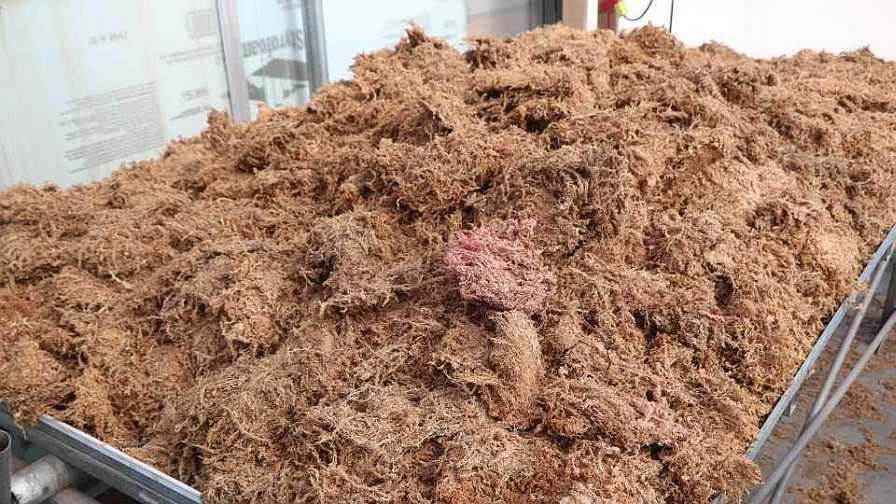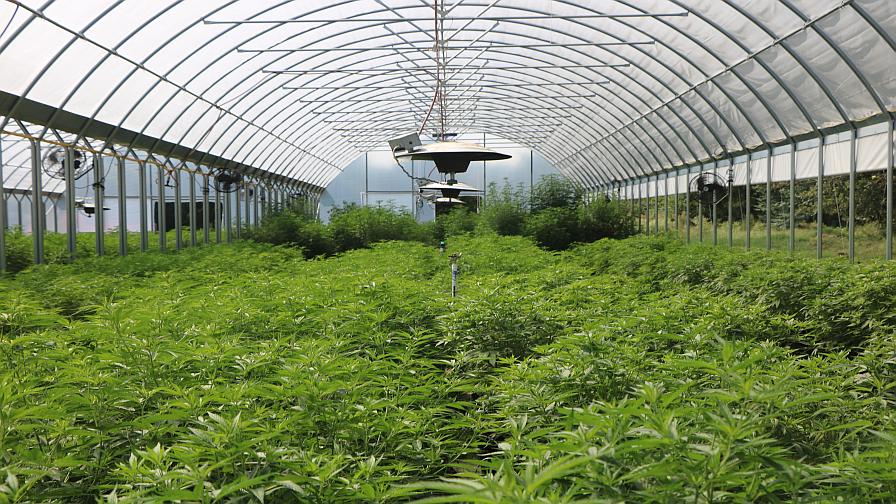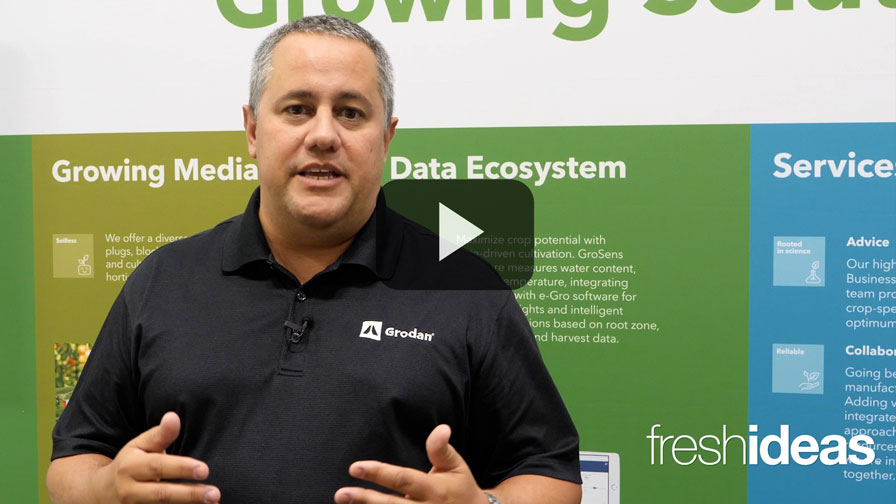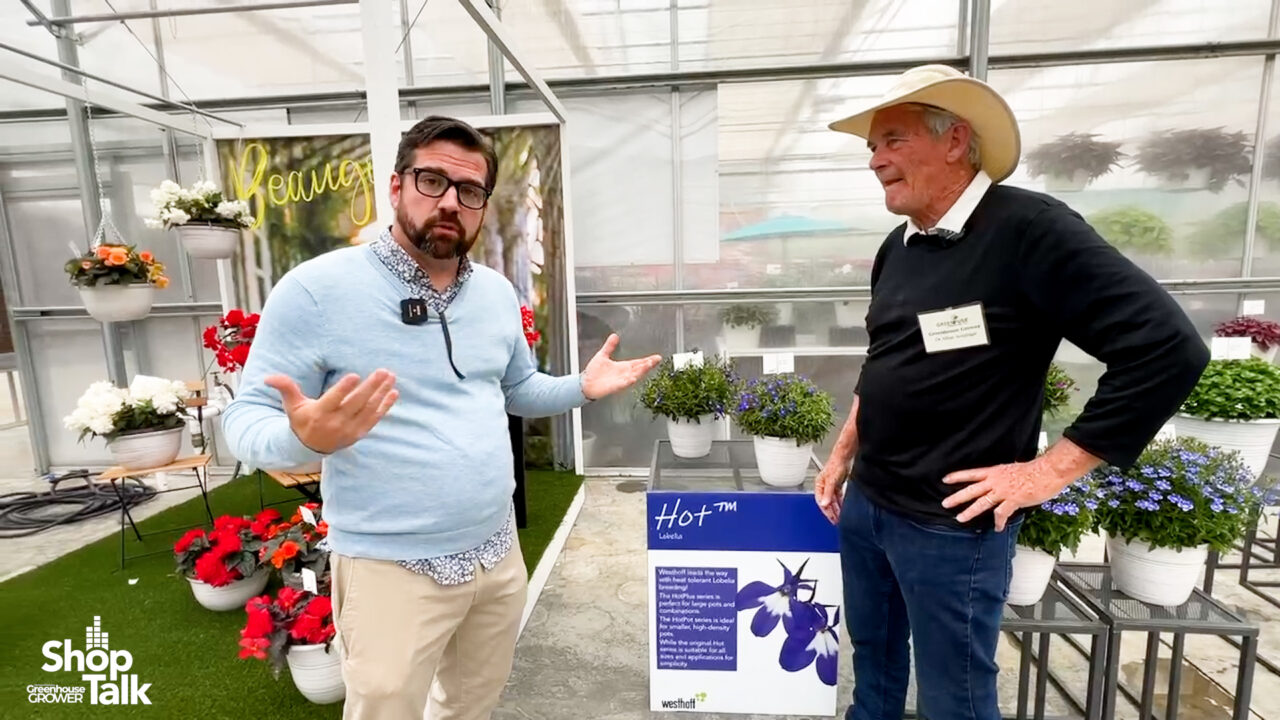Ways To Keep Growing Media Safe for Your Plants

Quality assurance measures of growing media product translate to healthy plants. Photo courtesy of Lambert Peat Moss
Greenhouse Grower asked growing media suppliers and those companies that offer related products about what they are doing to ensure that the products you buy from them are free of harmful plant and animal pathogens and excessive levels of heavy metals. We also asked about some of the biggest challenges growers face when working with growing media, and how their company is helping to address those issues. Here’s a recap of what they had to say.
ASB Greenworld
ASB Greenworld determines the suitability and efficacy of additives that can be used together in its recipes. It looks to see how an additive(s) affects absorption, water management, and soil chemistry, and it determines its economic value (benefits versus cost). ASB Greenworld develops prototype batches and tests with real-life growing challenges. The company also uses its own laboratory testing and independent laboratory testing for root zone chemistry (pH, EC, nutrient concentrations, etc.), and substrate physicality (pore space, water handling, dust, etc.).
Berger
Regarding growing media for consumables, Berger has tried to be proactive and stay ahead of the curve on this front by adding new equipment and procedures to address the growing demand for products that are safe for food production. The company also monitors its entire supply chain for food pathogens and has implemented additional security measures to further reduce the risks of contamination throughout the manufacturing process. Berger also applies many of the above precautionary actions to testing for heavy metals in all the ingredients it uses for its growing media, including those it manufactures.
Lambert Peat Moss
Lambert’s peat bogs are steadily monitored for the presence of pathogens and heavy metal content. It has an on-site laboratory to perform analysis and sends all its samples to an external laboratory for independent results. The company works with water already treated by a treatment plant before reaching its production site and uses its own water treatment system just before the water reaches its mixing lines for double insurance in case a problem occurs along the road.
Profile Products
Profile Products performs quality control and quality assurance checks every 30 minutes during production at its HydraFiber plant to ensure the finished product is consistent in every single bale. It conducts routine testing on its finished goods in an in-house lab and performs annual testing on its materials through certified testing labs to ensure quality, consistency, and performance. The company tests regularly for heavy metals to ensure customers can use its products safely for food production.
Sakata Solutions
Sakata’s technical department selects all the raw materials for its growing media products according to strict, internal quality criteria. Chemical and physical properties are analyzed, as well as biological characteristics. Within the scope of these tests, the following parameters, among others, are examined either in the laboratory of the substrate manufacturer or in external laboratories: pH value, salinity, nutrient contents, harmful salts such as sodium or chloride, heavy metals, and other pollutants, physical properties (porosity, water capacity, air capacity), weed growth, plant safety, plant diseases, plant pests, and human pathogens.
BVB Substrates
BVB has a firm grip on its raw material sources. This results in safe substrates and traceability of every single cubic yard of product back to the source. The company’s raw materials come only from certified, thoroughly tested sources, and it offers external lab tests for every batch it delivers to ensure its customers (and their customers) are always safe and can work in a well-documented way. For leafy greens and other consumables grown in a greenhouse environment, BVB supplies safe media, free of any kind of harmful pathogens and way below recommended limits of heavy metals.
Riococo
The two challenges Riococo sees growers facing for production are price and supply. Not all companies are the same or have high-quality control standards. New educated growers are learning about the quality difference, which is causing a shift in the market away from cheaper products. Many countries focus on buying the cheapest products that are not quality. Spending slightly more on better products will increase yields and reduce costs overall on other inputs.
Gro-Bark
Gro-Bark has a detailed procedure that ensures thorough cleaning of its mix line before blending food-grade recipes. Weekly and biweekly quality assurance testing ensures that all its mix ingredients meet or exceed their specified parameters. Gro-Bark also maintains detailed records of every mix produced off its line. To test for heavy metals, Gro-Bark submits samples to a third-party accredited lab to confirm that concentrations of trace elements are within acceptable parameters.
Pindstrup
Pindstrup tests raw peat in the bog for dry matter, water content, pH, and conductivity as well as weed seeds. During production, it continuously takes samples for immediate analysis in its on-site laboratory, testing for distribution of particle size, water uptake, pH and conductivity, and drain capacity and water-holding capacity.
Substrate only leaves the Pindstrup factory once it meets all of the company’s quality standards. Each bag includes a printed production code for track and trace. For loose substrates, Pindstrup prints a declaration showing the production codes for traceability.
Mycorrhizal Applications
Mycorrhizal Applications produces beneficial mycorrhizal fungi in vivo (in the plant) and in vitro (in the laboratory). Products contain a blend of several different species of beneficial mycorrhizal fungi. This diversity is important because different species perform better under different conditions and are responsible for different benefits such as drought and salt tolerance, better nutrient uptake, and tolerance to high fertility levels.
Sun Gro Horticulture
Sun Gro has a strong commitment to sustainability and its environmental values. Its Canadian peat production sites are Veriflora Certified for environmental sustainability and product integrity. Many of its products are listed by the Organic Materials Review Institute (OMRI) for organic gardening. Some of its mixes are also certified by The Mulch and Soil Council (MSC). This certification assures product integrity and means that products have been verified to match label claims.
Premier Tech Horticulture
Certifications issued by independent organizations represent a guarantee of the quality and performance of Premier Tech Horticulture’s products. In 2016, they obtained VeriFlora Certified Peatland Products certification from Scientific Certification Systems for responsible peatland management during every aspect of production — from field preparation before harvesting to peat bog restoration, including product quality control and team members’ work conditions.
Grodan
Grodan stone wool is produced under the highest quality control standards (ISO 9001) with great consideration for protecting the environment. The company has earned the European Eco-label, a more stringent environmental label that is used in Europe. Through Grodan’s website and regional representation throughout the world, the company strives to educate growers, step-by-step, on how to best use its products for the safe and healthy production of vegetables and other plants.










